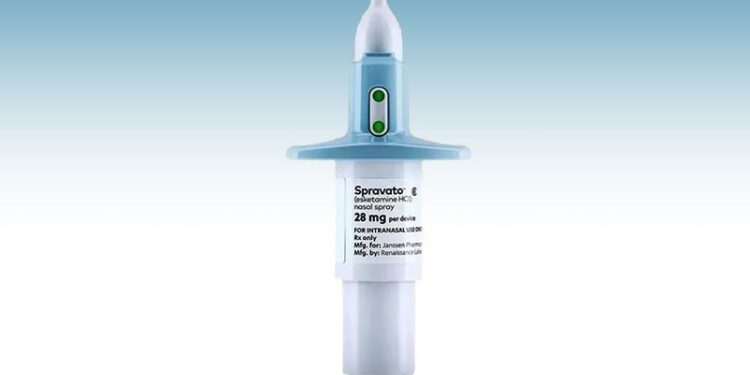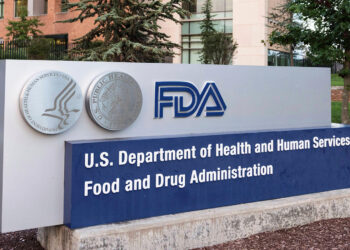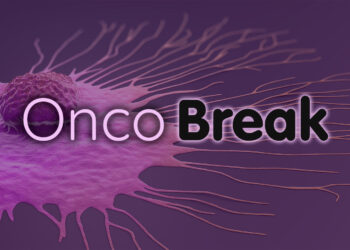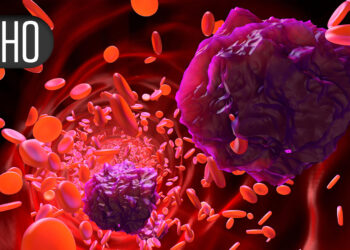TOPLINE:
Esketamine monotherapy was associated with significantly alleviated symptoms of treatment-resistant depression (TRD) at day 28 compared to placebo in a new phase 4 trial. The research extends findings from an earlier trial that served as the basis for the January FDA approval of an expanded indication for esketamine alone in patients with TRD.
METHODOLOGY:
- The phase 4, double-blind, placebo-controlled, randomized clinical trial was conducted from 2020 to 2024 at 51 outpatient centers in the US.
- Adults with major depressive disorder (mean age, 45.4 years; 61% women) with inadequate response to two or more oral antidepressants during the current depressive episode were included.
- After an antidepressant-free period of 2 or more weeks, participants were randomly assigned to receive intranasal esketamine monotherapy 56 mg (n = 86) or 84 mg (n = 95) or matching placebo (n = 197) twice weekly for 4 weeks.
- The primary outcome was a change in the Montgomery-Åsberg Depression Rating Scale (MADRS) score from baseline to day 28. Other outcomes included change in MADRS score at 24 hours post-first dose, rates of response and remission, and occurrence of adverse events.
TAKEAWAY:
- Compared with placebo, esketamine at 56-mg and 84-mg doses was associated with a significant reduction in depressive symptoms at day 28 ( P < .001 for both), with corresponding effect sizes of 0.48 and 0.63, respectively.
- Both doses of esketamine were also linked to significantly alleviated depressive symptoms at 24 hours post-first dose compared to placebo (P = .004 and P = .006, respectively).
- Response and remission rates were significantly higher in both esketamine groups at all timepoints assessed than in the placebo group.
- The most common treatment-emergent adverse events for combined doses of esketamine were nausea (25%), dissociation (24%), dizziness (22%), and headache (19%).
IN PRACTICE:
“This study supports esketamine monotherapy as an important option in the management of patients for whom [oral antidepressants] or other pharmacological treatments are no longer appropriate or acceptable,” the investigators wrote.
“Esketamine monotherapy can potentially address a significant unmet need for the especially vulnerable, untreated TRD subpopulation at risk of serious outcomes,” they added.
SOURCE:
The study was led by Adam Janik, MD, Department of Neuroscience, Johnson & Johnson, San Diego. It was published online on July 2 in JAMA Psychiatry.
LIMITATIONS:
The study’s generalizability was limited by the exclusion of patients with significant psychiatric or medical comorbidities and substance dependence, as well as by limited racial and ethnic diversity among participants.
DISCLOSURES:
The study was funded by Janssen Research & Development. Several investigators reported being employees of, holding stocks in, or having financial ties with various organizations and pharmaceutical companies, including Johnson & Johnson and its Janssen division. Some investigators also reported holding patents for esketamine for the treatment of depression, with rights assigned to Johnson & Johnson.
This article was created using several editorial tools, including AI, as part of the process. Human editors reviewed this content before publication.
Source link : https://www.medscape.com/viewarticle/esketamine-monotherapy-safe-effective-resistant-depression-2025a1000inq?src=rss
Author :
Publish date : 2025-07-15 09:17:00
Copyright for syndicated content belongs to the linked Source.










